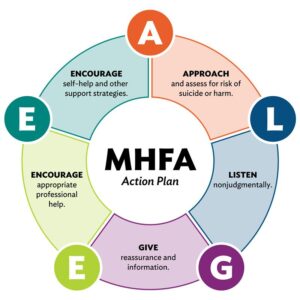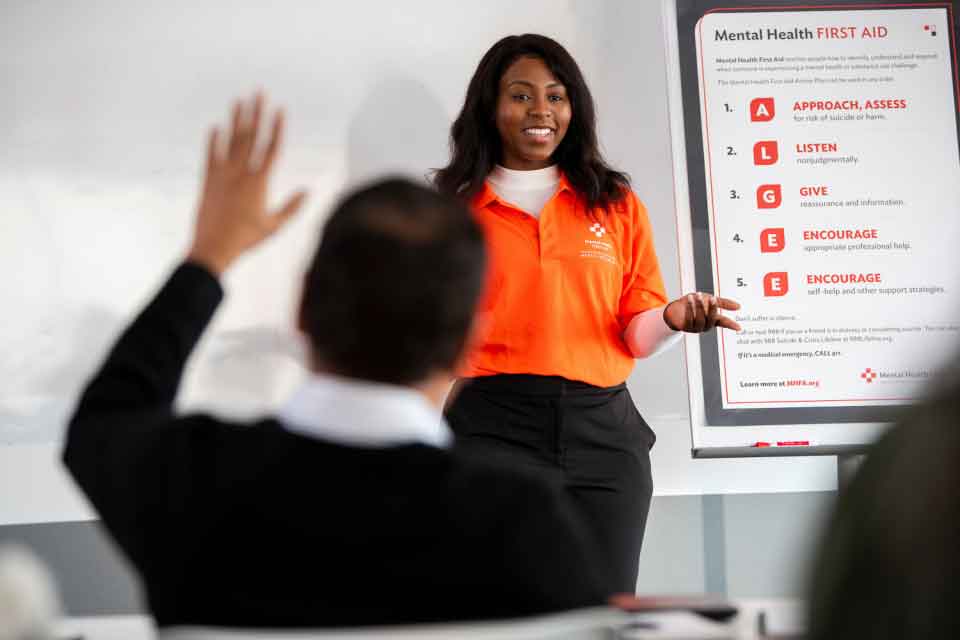
I never expected to put the things I learned from Mental Health First Aid to use so soon. As a psychology student at Brigham Young University, the training seemed like a great opportunity for me to supplement my classwork with some real-world knowledge. So, I signed up and took the course.
The day after I completed the training, my usually reliable friend didn’t come to church services, which was out of character—especially since she was teaching a Sunday School class. My roommate and I were concerned because we knew she was living with depression and anxiety, so we texted her. She responded that she was having a really bad time and she decided to stay home. It was a red flag, so we left early and went to see her.
As soon as we walked into her apartment, the ALGEE action plan I had learned in the training clicked in. I checked it off in my head. Is she okay? Does she know she can seek professional help? I immediately started assessing her for suicide and self-harm. I knew that we didn’t want to leave her alone and that we should get her into another environment.
My roommate said, “Hey, we’ve got Oreo cookies in our apartment. Why don’t you come up and we can talk?” She was reluctant at first, but she finally came up and we talked it out.
As we walked through the ALGEE steps, I could see how applying them made things go more smoothly. I had more confidence in what I was doing and saying, and I was a lot more comfortable dealing with the situation than I would have been just a week before.
We talked about what she was feeling. At the beginning, she was reserved and uncomfortable, but as we listened non-judgmentally, I could see in her body movement and the tone of her voice that she was more comfortable and more able to open up.
We learned that she was afraid she’d feel this way for the rest of her life and that she’d never be “normal.” We reassured her that recovery was possible and encouraged her to seek professional help through the free on-campus counseling service. We also gave her tools for self-help and told her she could turn to us and other friends, her family, and her faith for support.
She’s working with a counselor and doing much better now. She still has her ups and downs, but when I see her, she seems to be dealing well with her challenges. I’m not sure how differently things would have gone if I hadn’t had a plan to follow in that situation. But thanks to my Mental Health First Aid training, I didn’t have to find out.
I would encourage everyone to take a Mental Health First Aid course. You never know when you’re going to have a situation when you’ll need to use the ALGEE techniques. And you never know when your actions can #BeTheDifference in someone’s life.
What you learn in Mental Health First Aid fits into your everyday life and enriches it. It helps you in the roles you already play in people’s lives: to be a better, more prepared parent, friend, colleague, teacher. Whatever role you play in someone else’s life, Mental Health First Aid will help you do a better job of helping someone in need.
Ethan Call is a psychology student at Brigham-Young University in Utah.




